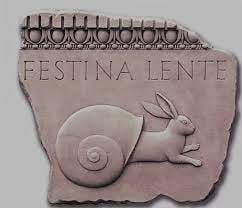The Rational Cloning: Weekly Ideas #40
Brian Laks (Old West) on Tin and Alphamin, Pierre Andurand on Commodities, Ray Dalio on Stagflation, Tweets That Make You Go… Hmm 🤔
Welcome to the 40th edition of the Rational Cloning Newsletter (Weekly Ideas Series).
Helping you discover the best ideas of others.
Happy cloning.
Weekly Investment Ideas
(1) Brian Laks of Old West on Tin and Alphamin


(2) The Current State of Commodities w/ Pierre Andurand
(3) Reducing Inflation Will Come at a Great Cost: Stagflation (Ray Dalio)
By these measures central banks policies have not been good. More specifically,
The Fed is moving from printing and buying debt at an annual rate of around $1.5 trillion to selling it at an annual rate of $1.1 trillion, and from sharply lowering interest rates to sharply raising them. For that reason, we experienced the big lurch forward and are now experiencing the big lurch backward.
Because debt assets and liabilities are now very high and because government deficits will remain high, it is virtually impossible for the Fed to push interest rates to levels that are high enough to adequately compensate holders of debt assets for inflation without them being too high to support strong debtors, strong markets, and a strong economy. If the holders of debt don’t get adequate returns they will sell them, which worsens the free market debt supply/demand picture, which either leads to a dramatic cutback in private credit (which is depressing) or the central bank creating more money and buying more debt to fill in the funding hole (which is inflationary).
In summary my main points are that:
There isn’t anything that the Fed can do to fight inflation without creating economic weakness
With debt assets and liabilities as high as they are and projected to increase due to the government deficit, and the Fed also selling government debt, it is likely that private credit growth will have to contract, weakening the economy, and
Over the long run the Fed will most likely chart a middle course that will take the form of stagflation.
Tweets That Make You Go… Hmm 🤔























